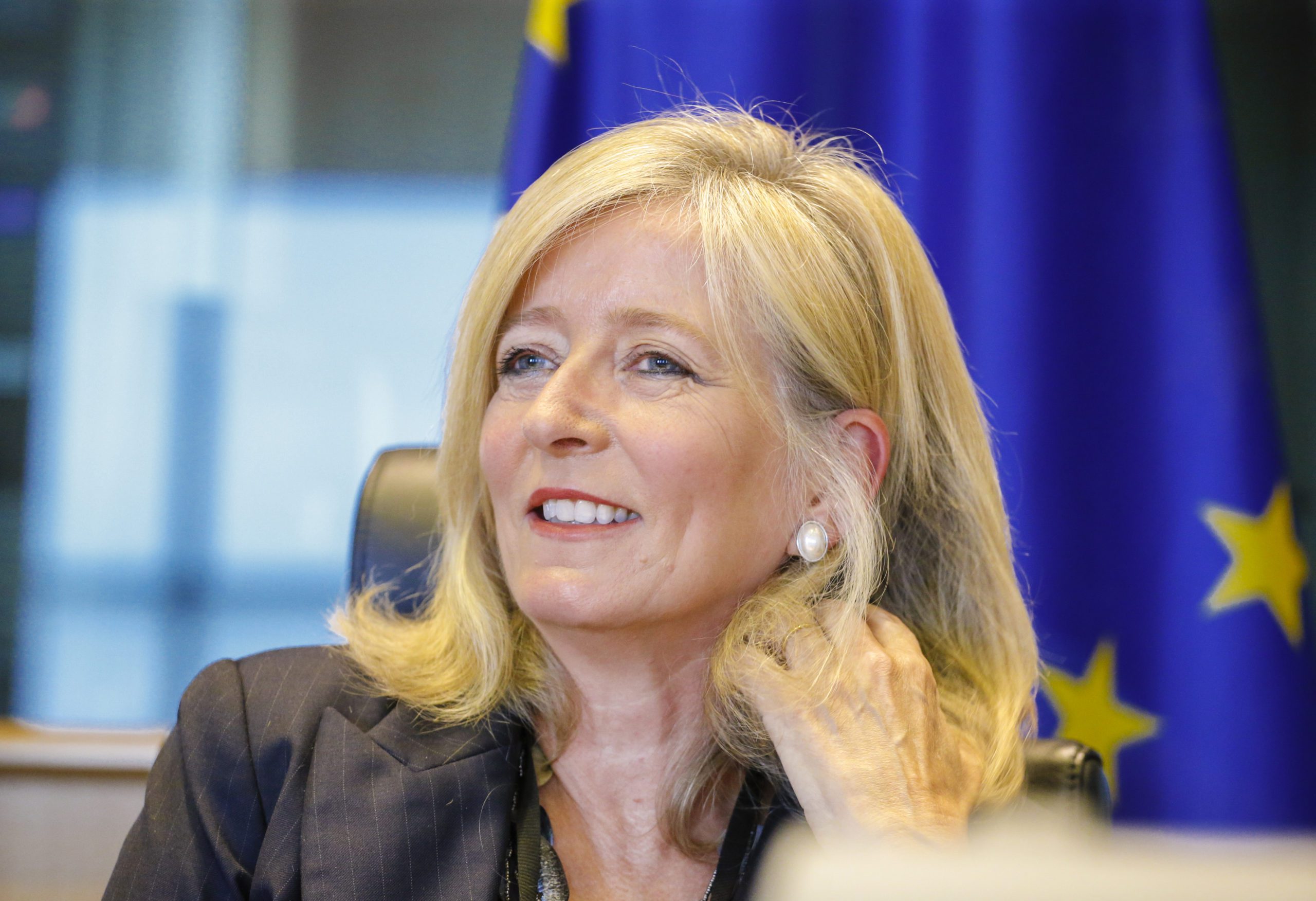
In a final salvo to conclude the delete-gate scandal over text messages exchanged between European Union Commission President Ursula Von der Leyen and Pfizer CEO Albert Bourla, the European Ombudsman reaffirmed the commission had mishandled the texts.
European Ombudsman Emily O’Reilly called the incident “a wake-up call for all EU institutions about ensuring accountability in an era of instant messaging.”
The dispute started last year following a New York Times article that referred to direct text exchanges between Von der Leyen and Pfizer CEO Albert Bourla regarding coronavirus vaccines. After the news broke, a second journalist requested the texts from the Commission but was denied access, and then filed a complaint with the ombudsman. In response, Ombudsman O’Reilly issued an initial finding of maladministration on the part of the Commission. She found that the Commission had not saved the texts, but should have, because the exchanges between the two executives were a matter of public interest: Von der Leyen had negotiated vaccine contracts for the EU with Bourla. O’Reilly urged the Commission to make a more serious effort to find the texts.
But the Commission never produced them.
In June, the Commission issued its own reply to O’Reilly: it hadn’t saved the texts because the content wasn’t important enough. The Commission reported:
As a preliminary remark, it should be underlined that the Commission and the Ombudsman do not disagree regarding the notion of what constitutes a “document”… as “any content whatever its medium (written on paper or stored in electronic form or as a sound, visual or audio-visual recording) concerning a matter relating to the policies, activities, and decisions falling within the institution’s sphere of responsibility.”
It then stated: “the Commission and the Ombudsman agree that what matters is the content of a document.” In other words, the point at which a document becomes worth saving is the degree to which it is considered important.
“Short-lived, ephemeral documents are not kept,” the Commission explained.
So, although texts in general could legally qualify as public documents, they don’t when they are light chatter.
In its defence, the Commission cited guidance that instructed officials to use text messages “only for short-lived, ephemeral chat about public or non-sensitive content.”
O’Reilly disagreed and affirmed her conclusion of maladministration. She also published recommendations for text preservation, including technological solutions to make them easier to save.
The scandal takes on greater relevance in light of recent revelations about Uber’s lobbying tactics and text message exchanges between Uber executives and French President Emmanuel Macron.
If text messages are not saved, how can they be verified as “ephemeral”?
